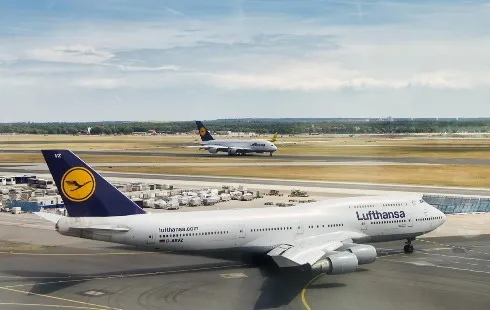
How Advancements in Science Are Changing How We Approach Health
Section: Health
The Association of Southeast Asian Nations (ASEAN) is set to host a significant summit in Kuala Lumpur in May, where it will extend invitations to representatives from China and several Gulf states. This move is seen as a potential step towards forming new trade alliances in response to the shifting dynamics of global trade, particularly in light of the tariff policies implemented by the United States.
Malaysian Prime Minister Anwar Ibrahim emphasized that the inclusion of non-member states is not an attempt to oppose the US or indicate a choice between major powers. Rather, he highlighted the importance of maintaining ASEAN's strategic relevance in a world characterized by multiple power centers.
Experts suggest that while the ASEAN bloc, along with China and the Gulf Cooperation Council (GCC), may see mutual benefits from enhanced trade cooperation, such a partnership could raise concerns in Washington. Analysts point out that many ASEAN nations, alongside the Gulf states and China, maintain significant trade surpluses with the US, making them cautious of provoking a reaction from the Trump administration, which has previously used trade policy aggressively.
The GCC, comprising Saudi Arabia, the UAE, and other Gulf nations, boasts a combined GDP of approximately $2.1 trillion as of 2023, with a substantial portion generated by its largest economies. In contrast, the ASEAN region, home to around 690 million people, recorded a GDP nearing $3.8 trillion in 2023, driven significantly by Indonesia.
Despite the varied economic status of its member states, ASEAN has emerged as a key player in global trade, ranking third among trading partners for the European Union, following the US and China. The bloc's top trade partners include China, the US, the EU, and Japan. Recent years have seen ASEAN countries benefitting from the trade tensions between the US and China, as they have gained market share in exports and attracted foreign investments.
The COVID-19 pandemic has prompted many multinational companies to reconsider their supply chains, leading to increased diversification of manufacturing investments toward ASEAN nations. Notably, foreign direct investment from OECD countries in ASEAN has surged, now surpassing that in China.
Stronger ties between ASEAN and Gulf states can be strategically beneficial, according to analysts. While current trade figures between ASEAN and the GCC are modest, there is substantial potential for growth. With a pressing need for ASEAN nations to diversify their trade relationships, collaboration with the EU and the GCC could facilitate more open and free multilateral trade.
Geographically, ASEAN countries like Malaysia, Indonesia, and Singapore are strategically positioned along the Strait of Malacca, a crucial global trade route through which a significant proportion of the world's trade volume and oil shipments transit. This advantageous position further underscores the importance of ASEAN in the global economic landscape.
Amid ongoing trade tensions, Malaysia's initiative to invite China marks a notable shift in ASEAN's approach to international partnerships. Observers view this as an opportunity for a tripartite collaboration that leverages the strengths of all involved parties. The Gulf states, with their extensive oil and gas revenues, could provide critical investments aimed at advancing technology and artificial intelligence sectors in ASEAN nations.
Prospective studies suggest that several ASEAN countries are poised to enhance their roles in global trade, with Malaysia and Vietnam emerging as potential next-generation trade hubs. The ongoing developments indicate a clear trend towards diversifying foreign policy approaches as ASEAN nations navigate the complexities of global trade dynamics.

Section: Health

Section: Health

Section: News

Section: Arts

Section: News

Section: Travel

Section: News

Section: News

Section: Politics

Section: Arts

Health Insurance in Germany is compulsory and sometimes complicated, not to mention expensive. As an expat, you are required to navigate this landscape within weeks of arriving, so check our FAQ on PKV. For our guide on resources and access to agents who can give you a competitive quote, try our PKV Cost comparison tool.

Germany is famous for its medical expertise and extensive number of hospitals and clinics. See this comprehensive directory of hospitals and clinics across the country, complete with links to their websites, addresses, contact info, and specializations/services.

The exhibition commemorates the 300th birthday of Kurfürst Karl Theodor, who became the ruler of Bavaria after the last altbayerische Wittelsbacher passed away in late 1777. Despite his significant contributions to economic modernization, social improvements, and cultural initiatives like the...
No comments yet. Be the first to comment!